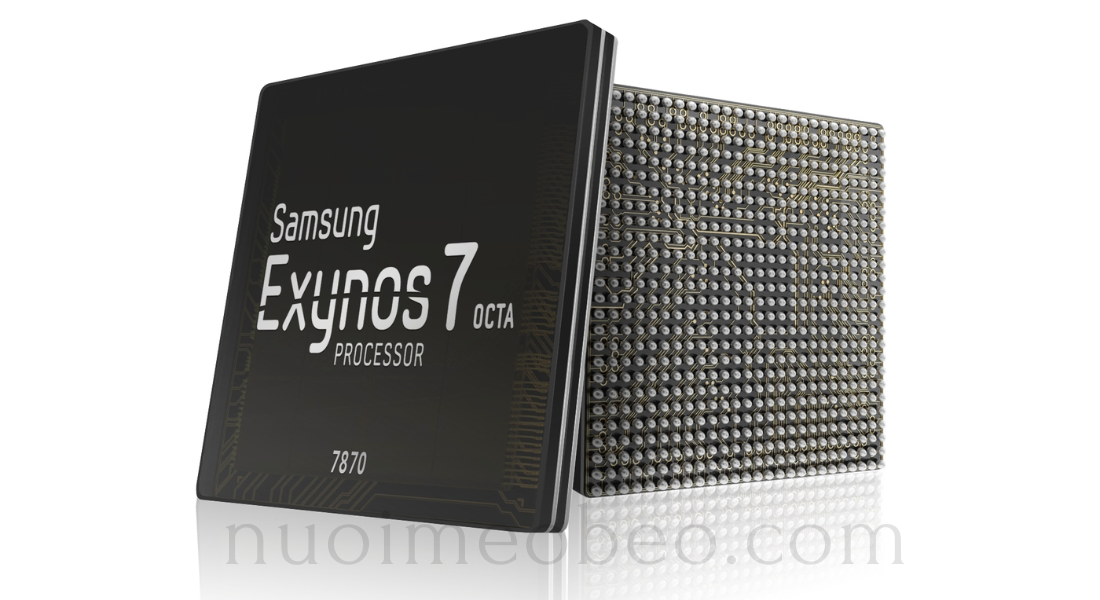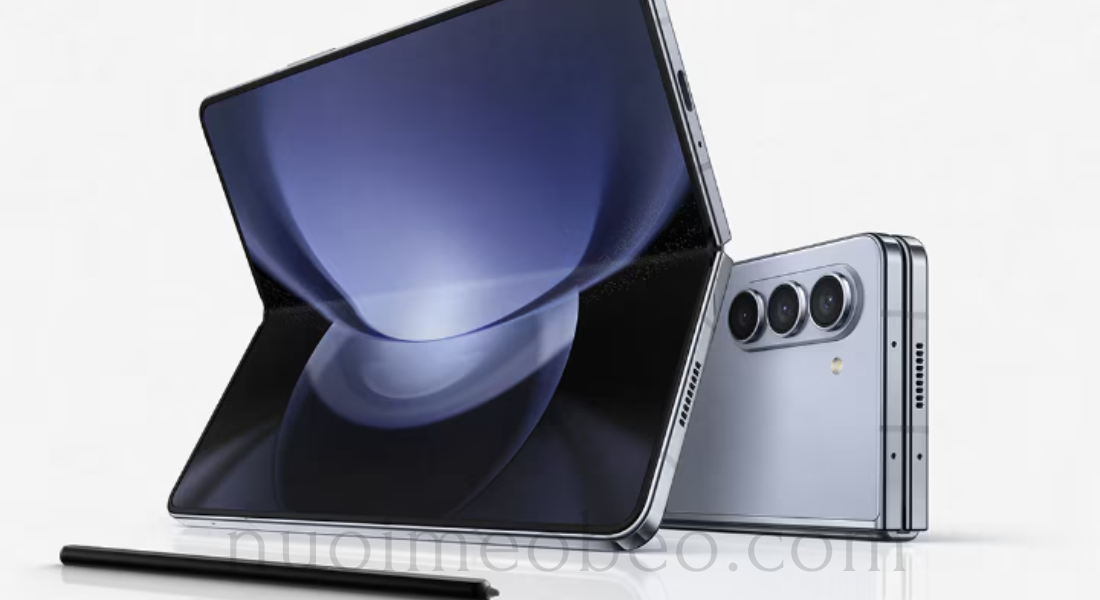Samsung Exynos Processor: The Heart of Cutting-Edge Mobile Performance
In the rapidly changing world of mobile technology, processors are crucial in determining the performance, speed, and efficiency of smartphones. One of the most important processors in this space is the Samsung Exynos processor. It powers many Samsung smartphones and tablets, contributing to their performance, battery efficiency, and user experience. As one of the leading players in the mobile chipset market, Samsung has consistently improved its Exynos processors, creating chips that cater to various performance levels and user needs.
This article provides an in-depth look at the Samsung Exynos processor. We’ll examine its features, evolution, and strengths. Additionally, we’ll compare it to other processors in the market. Whether you’re a tech enthusiast or a casual smartphone user, understanding the Samsung Exynos processor will help you make better choices regarding the devices you use.
What is the Samsung Exynos Processor?
The Samsung Exynos processor is a line of system-on-chip (SoC) processors developed and manufactured by Samsung Electronics. These processors are at the core of the performance of many Samsung smartphones and tablets. Exynos chips provide everything from computing power to energy efficiency. The Exynos processors are featured in various Samsung devices, including the Galaxy series, which includes flagship smartphones, mid-range models, and budget-friendly devices.
Exynos processors integrate several critical components. These components include the CPU (central processing unit), GPU (graphics processing unit), memory controller, and other important hardware. Thanks to these integrated features, Samsung’s devices can handle tasks like gaming, multitasking, and high-end photography, all while maintaining impressive battery life.
The Evolution of the Samsung Exynos Processor
Samsung has been developing Exynos processors for over a decade. During that time, they’ve made significant progress in improving the performance and efficiency of these chips. The first Exynos processor, the Exynos 3 Single, was released in 2010. Since then, Samsung has released newer models, each with enhanced capabilities.
Over the years, Exynos processors have gone through multiple generations. For instance, the Exynos 8 Octa, released in 2016, marked a major leap in both power efficiency and speed. It featured an octa-core CPU that provided improved performance. The Exynos 990, released in 2019, made great strides in artificial intelligence (AI) performance and 5G connectivity.
More recently, the Exynos 2200, launched in 2022, introduced AMD’s RDNA 2 architecture. This significant development enhanced the graphics capabilities of Exynos processors. As a result, mobile gaming performance saw vast improvements, providing users with better graphics and smoother gameplay.
Key Features of Samsung Exynos Processors
Samsung Exynos processors stand out in several key areas. Their design prioritizes performance and energy efficiency, which is crucial for modern mobile devices. Here are some of the most notable features of Exynos processors:
1. CPU Performance
The CPU is the core component of any processor, and Exynos chips perform exceptionally well in this area. Samsung has made major strides in improving CPU performance by adopting more powerful cores. For example, the Exynos 2200 features the ARM Cortex-X2 core, delivering excellent single-core performance. The octa-core architecture, combining both high-performance and power-efficient cores, ensures that Exynos processors can handle demanding tasks without compromising battery life.
2. GPU Capabilities
For mobile gamers, the GPU is just as important as the CPU. Samsung has integrated powerful GPUs into Exynos processors. With the partnership with AMD, the latest Exynos chips now include RDNA 2 graphics architecture. This improvement delivers a better gaming experience, with high-quality graphics, smoother gameplay, and less lag.
3. Energy Efficiency
One of the strongest selling points of Exynos processors is their energy efficiency. Samsung focuses on reducing power consumption, which extends battery life in smartphones. The energy efficiency is achieved through advanced manufacturing techniques and intelligent power management systems. As a result, devices equipped with Exynos chips can run for longer periods without needing a recharge.
4. 5G Connectivity
As 5G networks become more widespread, having a processor with built-in 5G support is crucial. Exynos processors have integrated 5G modem technology, enabling fast download and upload speeds, low latency, and reliable connections on 5G networks. This technology allows users to enjoy seamless streaming, gaming, and browsing experiences.
5. AI and Machine Learning
Samsung has also focused on AI and machine learning with its Exynos processors. The latest Exynos chips feature dedicated AI processors that handle tasks like facial recognition, real-time image enhancements, and more. AI integration improves the user experience and allows for more advanced features, such as improved photography and security.
Samsung Exynos vs. Qualcomm Snapdragon: A Comparison
The Samsung Exynos processor faces competition from Qualcomm’s Snapdragon chips. Snapdragon processors are widely used by many Android device manufacturers, including high-end brands like Google, OnePlus, and Xiaomi. Let’s compare the performance of these two processors in various areas:
Performance
Both Exynos and Snapdragon processors provide exceptional performance. However, Snapdragon chips tend to have an edge in raw CPU performance, especially when it comes to multi-core tasks. For instance, the Snapdragon 8 Gen 3 outperforms the Exynos 2200 in some multi-core benchmarks. However, Exynos processors tend to perform better in energy efficiency, which results in longer battery life despite similar processing power.
Graphics
In terms of GPU performance, both Snapdragon and Exynos processors offer strong capabilities. The latest Exynos processors, particularly those with RDNA 2 graphics, offer impressive gaming performance. These processors deliver superior graphics rendering and smoother gameplay. However, Qualcomm’s Snapdragon chips have also demonstrated excellent GPU capabilities, particularly in mobile gaming.
5G and Connectivity
Both Exynos and Snapdragon processors offer integrated 5G support. However, Snapdragon chips have traditionally offered better 5G modem performance in earlier generations. That said, Exynos processors have made substantial improvements in recent years, narrowing the gap with Snapdragon in terms of 5G connectivity.
The Future of Samsung Exynos Processors
Looking ahead, the future of the Samsung Exynos processor is bright. Samsung continues to invest heavily in research and development to create even more powerful chips. The company is expected to focus on several key areas for improvement in the coming years:
AI and Machine Learning Integration
AI and machine learning are becoming increasingly important in mobile devices. Samsung plans to integrate even more AI capabilities into its Exynos processors, enhancing features like image processing, security, and user interface optimization. As AI becomes more prevalent in smartphones, the Exynos processor will play a central role in improving the overall user experience.
Mobile Gaming
With the rise of mobile gaming, Samsung will likely continue improving GPU performance. The Exynos processors’ graphics capabilities are set to evolve further, enabling a smoother and more immersive gaming experience. Expect more powerful GPUs to handle the next generation of high-performance games.
5G and Beyond
5G technology is still in its early stages, and Samsung plans to lead the way in advancing this connectivity standard. Exynos processors will continue to evolve to support even faster 5G speeds and improved network reliability. Samsung is also investing in 6G research, which could shape the future of mobile connectivity.
Conclusion
The Samsung Exynos processor is an essential part of Samsung’s mobile devices. These processors deliver excellent performance, energy efficiency, and advanced features like 5G connectivity and AI integration. Exynos processors continue to evolve, with each generation bringing new improvements in speed, power efficiency, and graphics capabilities.
As Samsung pushes the boundaries of mobile technology, Exynos processors will remain at the forefront of innovation. Whether you’re using your smartphone for gaming, photography, or multitasking, the Samsung Exynos processor ensures a high-performance experience that meets modern needs. As the mobile industry continues to evolve, the Exynos processor will be a key player in shaping the future of smartphones and mobile devices.





